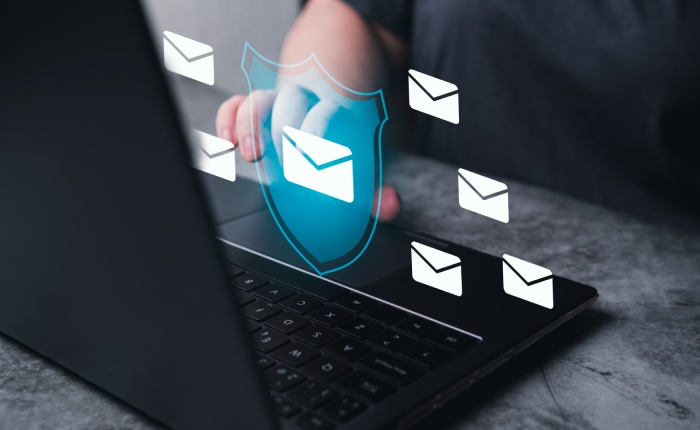How Anti-Phishing Service Stops Cyber Criminals From Stealing Your Sensitive Information
Phishing attacks, among the most prevalent cyber threats, aim to trick individuals into revealing personal details like passwords and credit card information. Thankfully, anti-phishing services have been developed as an effective defense against these dangers. In this discussion, we will examine the functionality of these services and their ability to prevent cybercriminals from accessing your sensitive data.
Understanding Phishing and Its Threats
Phishing schemes are executed by unscrupulous individuals who masquerade as reliable organizations such as financial institutions, online shopping platforms, or government agencies to deceive people into disclosing their confidential data. The primary objective is to obtain personal details, which can subsequently be exploited for identity theft, financial scams, or unauthorized entry into digital accounts.
Types of Phishing Attacks
- Email Phishing involves scammers sending deceptive emails that appear to originate from reputable companies.
- Spear Phishing is a more focused approach, targeting specific individuals or organizations by leveraging personal information to enhance the believability of the communication.
- Vishing, or voice phishing, occurs when cybercriminals make phone calls or leave voice messages while pretending to be legitimate organizations in order to obtain sensitive information.
- Smishing refers to phishing attempts carried out via text messages instead of emails.
- Whaling is a specialized form of phishing that targets top executives or important figures within a company. Delve into this website for extra details.

How Anti-Phishing Services Work
1. Email Filtering and Detection
The majority of phishing attempts begin with a misleading email. To combat this, anti-phishing solutions utilize sophisticated algorithms to identify these fraudulent messages by searching for particular indicators, including:
- Questionable Sender Email: The system checks for atypical sender addresses and any inconsistencies in the domain name.
- Fraudulent Links: Anti-phishing tools examine embedded hyperlinks to determine if they lead to counterfeit websites.
- Pressuring or Menacing Language: Phishing messages frequently employ distressing language to elicit immediate responses. Anti-phishing solutions identify this kind of communication and mark it as potentially harmful.
- Harmful Attachments: Attachments in emails are scrutinized for malware that may compromise sensitive information or introduce malicious software onto the recipient's device.
2. Website Authentication and Blocking
Phishing attackers often employ a key tactic of designing counterfeit websites that mimic real ones. To counter this, anti-phishing services work by checking the legitimacy of websites before user access. This verification process utilizes various methods such as:
- Reputation Assessment of Domains: Various services keep extensive records of identified phishing domains and verify websites against these lists to confirm their authenticity.
- Verification of SSL Certificates: Authentic websites generally possess SSL certificates that safeguard the information exchanged between the server and the user. Anti-phishing tools verify whether a valid SSL certificate is present to assess a website's reliability.
- Visual Cues: Certain anti-phishing solutions provide browser extensions or toolbars that display visual cues, like a green padlock, indicating that a website is secure.
3. Real-Time Threat Intelligence
To effectively combat phishing, anti-phishing services utilize real-time intelligence feeds that provide insights into the latest tactics and scams. These services are in a continual state of monitoring global phishing activities, facilitating the exchange of threat information among various organizations, and refining their detection systems.

4. Multi-layered Protection
Anti-phishing services typically employ a variety of security measures to ensure thorough protection. This approach involves several layers, such as scanning emails, safeguarding browsers, securing devices, and implementing defenses at the network level. By integrating these strategies, anti-phishing services establish a strong defense mechanism that greatly minimizes the risk of becoming a target of phishing attacks.
Why You Need an Anti-Phishing Service
- Enhanced Protection Against Evolving Threats: Cybercriminals are constantly adapting their phishing strategies, which complicates the identification of deceitful practices. To combat these evolving threats, anti-phishing solutions employ artificial intelligence and machine learning, enhancing their ability to safeguard users against emerging risks.
- Reduced Risk of Identity Theft and Financial Fraud: Anti-phishing services play a crucial role in protecting your personal and financial data by blocking phishing emails and counterfeit websites, thereby greatly reducing the chances of identity theft and financial fraud.
- Improved Productivity and Reduced Downtime: Phishing schemes can result in data breach and operational interruptions, impacting individuals and organizations. Services designed to combat phishing significantly lower the chances of these threats, allowing users to concentrate on their tasks without the persistent worry of cyber threats.
- Peace of Mind for Businesses and Individuals: Having the assurance of an anti-phishing service can provide comfort to both individuals and organizations. As cybercrime continues to rise, these services play a crucial role in safeguarding your confidential information.